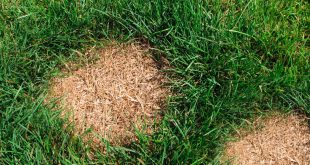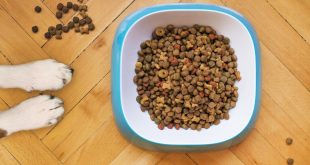This post may contain affiliate links. Please read our disclosure.
Are you looking for the best food to keep your small pup healthy? With so many options available, it can be hard to know which type of dog food is the best fit for your pet. From ingredients and nutrition levels to age-specific diets, there are a few key factors to consider when choosing the right food for your small dog. Read on to learn more about what makes a great diet choice for your furry friend!
Article Contents
Types of Small Dog Food
Small dogs come in all shapes and sizes, from toy breeds to terriers. As such, there is no one-size-fits-all when it comes to the type of food your small dog should eat. Depending on the size and age of your pup, you may need a specialized diet tailored just for him or her. Here’s an overview of some popular types of small dog food:
Dry Kibble: Dry kibble is perhaps the most common type of food for small dogs. It offers a balanced diet that can provide all the necessary nutrients while being easy to store and serve at mealtime. Additionally, dry kibble has been formulated with smaller bites geared toward tiny mouths—making it easier for smaller pups to chew up their meals!
Wet Food & Canned Meals: Wet foods are great alternatives to dry kibble if you’re looking for an extra juicy way to feed your pooch! These canned varieties are filled with moisture that helps keep your pup hydrated throughout the day as well as vitamins and minerals essential for growth and development. Plus they often have soft textures that make them easy on little teeth and gums.
Semi-Moist & Dehydrated Foods: Semi-moist foods offer another convenient option that’s both tasty and nutritious! They usually come in preportioned packages making them perfect snacks or additional meals throughout the day (and even night). The key here is moderation since these treats tend to be higher in fat than other types of food – so don’t overdo it!
Dehydrated foods provide another lightweight alternative if you’re looking for a more natural approach without sacrificing nutrient density or convenience factor; plus they’re simple enough that you can mix them into existing recipes like homemade wet or dry dishes too!
Ingredients to Look For in Small Dog Food
When buying food for your small dog, it is essential to look at the ingredients list. You want to make sure that you are providing the best and most nutritious diet possible for your pup. Taking a few minutes to read over an ingredient list can make all the difference in terms of their health and happiness.
First off, take a look at the protein sources in the food; this should be listed as one of the first few ingredients on any good-quality pet food. If there is no clear source of protein listed—such as chicken or beef—it may not have enough nutrition for your pup’s needs. Some great options include fish, lamb, turkey and duck meal which are high in omega 3 fatty acids that promote healthy skin and coat condition – something especially important when dealing with smaller breeds who tend to shed more fur than larger dogs.
Other things to look out for are carbohydrates such as brown rice or oats that provide sustained energy throughout day helping keep them full longer between meals, plus vegetables like peas and carrots act as natural sources of vitamins minerals necessary in keeping their immune system strong . Probiotics should also be included among these ingredients which help improve digestion; this is especially beneficial if they suffer from digestive issues like diarrhea or vomiting after eating certain foods. Finally, fats such as flaxseed oil provide essential fatty acids (omega-3s) that are vital for overall health including joint support – again vitally important due to many small dogs being prone to hip dysplasia!
• Protein Sources: Chicken/Beef/Fish/Lamb/Turkey/Duck Meal
• Carbohydrates: Brown Rice/Oats
• Vegetables: Peas & Carrots
• Probiotics • Fats: Flaxseed Oil
Nutritional Needs of Small Dogs
Small dogs have unique nutritional needs that should be taken into consideration when caring for them. Just like humans, small dogs need a balanced diet and regular exercise to stay healthy!
The first step in providing the best nutrition for your small dog is to understand their caloric needs. Smaller breeds of dogs require fewer calories than large breeds, so you’ll want to adjust the portion size accordingly. A good rule of thumb is to divide the daily calorie requirement into two or three meals per day instead of one larger meal. This will help keep your pup from overeating which can lead to obesity and other health risks down the line.
In addition to watching portion sizes, it’s important that you provide quality food made with wholesome ingredients like lean proteins, complex carbohydrates and essential fatty acids. Look for foods specifically designed for smaller breeds as they often contain higher levels of nutrients necessary for growth and development. You may also want to include some fresh fruits and vegetables as part of their diet – this can be an easy way add extra vitamins and minerals without overloading on unhealthy fats or sugars. Finally, make sure that you are offering access to clean water throughout the day; hydration is vital in keeping your pup happy and healthy!
Small Breed-Specific Diets
When it comes to providing your small breed pup with the best nutrition possible, a breed-specific diet is often the way to go. This type of diet takes into consideration all of the unique nutritional needs that come along with owning a smaller breed dog. From higher levels of protein and fat content to specially formulated vitamins and minerals, these diets are specifically designed for optimal health in dogs under fifteen pounds.
First and foremost, you want to make sure that any food you give your small pup has an appropriate level of protein – at least 18 percent – as this helps provide energy for their active little bodies. In addition, look for foods with high-quality animal proteins like chicken or fish meal so they get a full range of amino acids. It’s also important to ensure that your canine companion gets adequate fats from sources such as salmon oil or flaxseed oil which can help support healthy skin and coat while promoting strong joints due to its omega-3 fatty acid content.
The next step is finding a formula containing essential vitamins and minerals tailored specifically for small breeds so that their systems get exactly what they need without having too much or too little nutrients added in the mix. Look for formulas rich in chelated (bonded) trace minerals like zinc which helps promote healthy metabolism; biotin which supports proper digestion; vitamin B12 which helps produce red blood cells; taurine which assists cardiovascular health; plus antioxidants like Vitamin E & C to fight off free radicals that can cause cell damage over time.. Finally, be sure that whatever brand you choose offers ingredients sourced from reputable farms/manufacturers who don’t use hormones or additives because those can lead to serious long term issues if consumed on a regular basis!
Reading the Label on Your Dog’s Food
When it comes to feeding your furry friend, there is no one-size-fits all solution. Every pup has different nutritional needs and what works for one may not work for another. That’s why it’s so important to read the label on your dog’s food carefully before you buy it.
When looking at the label of a potential food option, start with the ingredients list and make sure that meat appears as one of the first three ingredients listed (the higher up in the list an ingredient is, the more prominent role it plays in the formulation). You’ll also want to pay attention to any “fillers” like corn or wheat – if those appear near the top of the list then this isn’t a good choice for your pup. Next up look at vitamins and minerals – make sure they’re included and check out their amounts; these should be balanced according to nutrition guidelines from organizations like AAFCO or FEDIAF.
You should also keep an eye out for potential allergens such as dairy, eggs, soybeans or wheat gluten which can cause digestive issues in some dogs; if present they’ll usually be highlighted towards either end of an ingredients list but still worth checking just in case! Finally take note of any artificial colors or flavors – while generally harmless these could have adverse effects on some pups so best avoided where possible. All considered once you’ve gone through each section you can determine whether this particular brand/flavor would provide adequate nutrition for your pooch!
Making Homemade Pet Food for Small Dogs
If you’re a pet parent of small dogs, you may be looking for ways to provide them with the healthiest food possible. One great way to do this is by making homemade pet food. It’s not as difficult as it sounds and can be done in just a few simple steps!
First, decide what type of meat or plant-based proteins you want to include in your homemade dog food recipe. Depending on your pup’s dietary needs, some popular choices are chicken, turkey, beef, fish, tofu and lentils. Choosing a healthy combination will ensure that your small dog gets all the essential nutrients they need while still enjoying their meals.
Next up is adding vegetables and grains into the mix. Green beans, carrots and sweet potatoes are all great options for providing vitamins and minerals; brown rice or quinoa can also help add fiber to their diet. You’ll want to cook any vegetables before serving them so that they’re soft enough for little jaws – steaming works best but boiling can work too if needed! Finally don’t forget about adding oils like coconut oil which helps keep skin healthy and fur shiny!
Making homemade pet food is an excellent way to give your small dog wholesome nutrition without breaking the bank – plus it’s fun experimenting with different recipes! Follow these tips when creating yours:
• Choose lean proteins like chicken or fish
• Include nutrient-rich veggies like green beans & sweet potatoes
• Add whole grains such as brown rice & quinoa
• Don’t forget about beneficial oils like coconut oil
Common Allergens in Dog Foods
When it comes to the ingredients that go into dog food, there are several potential allergens that can have an adverse effect on your pup’s health. Although all dogs are different and may not react negatively to any of these common allergens, knowing what they are can help you make sure your furry friend is eating a healthy diet.
The most common food-based allergies in dogs include wheat, corn, soybeans, beef, chicken eggs and dairy products. Wheat and corn are two of the most commonly used grains in commercial dog foods and can be difficult for some pups to digest. Soybeans contain high levels of protein which may cause an allergic reaction in certain breeds or individualdogs. Beef is another popular ingredient found in many types of pet foods but if it’s not cooked properly or if its processed with additives such as fillers and preservatives it could trigger an allergic reaction in some pets. Chicken eggs also carry a high risk for allergy reactions since they contain proteins that some animals might be sensitive to; however this isn’t always the case so consult with your vet before feeding them to your pet regularly. Lastly dairy products like milk cheese yogurt should only be given sparingly as they often contain lactose which is hard for many dogs to digest correctly leading to digestive issues or even skin irritations from contact allergies .
To ensure that you avoid these potentially dangerous ingredients when selecting a kibble for your pup read labels carefully check for natural grain free options look out for organic sources whenever possible and ask questions about the sourcing process if needed If you’re still unsure talk with your veterinarian about specific dietary needs breed sensitivities age related concerns etc before making a final decision on what type of food will best suit both yours four legged family member’s health needs lifestyle preferences budget requirements etc
Wrap up!
In conclusion, there is a lot to consider when it comes to feeding your small dog. It can seem overwhelming at first, but knowing the basics about types of food, ingredients to look for and nutritional needs specific to small breeds will help you make an informed decision on which food is best for your pup. Additionally, reading labels and considering homemade recipes are also important steps in providing your pup with the nutrients they need while avoiding allergens that could cause a reaction.
FAQ
What is the Best food for small dogs?
Premium kibble formulated specifically for smaller dog breeds is usually the best. Smaller dogs often have faster metabolisms, so they need food that contains more calories and higher quality ingredients to ensure their needs are met.
how important is it to groom my small dog?
Grooming your small dog regularly is very important as it helps keep their coat healthy and free of tangles and mats. It also enables you to check for any lumps or bumps that could indicate a health issue, as well as checking ears, eyes and nails for signs of infection or disease.
what should i look out for when buying a toy for my small dog?
When selecting toys for your small breed pup make sure they are made from safe materials such as rubber or soft plush fabrics; avoid hard plastic which can splinter if chewed on too much. Additionally, always choose toys with appropriate sizes in mind – larger ones may be a choking hazard while tiny ones won’t provide enough entertainment value!
what type of bedding should I buy for my small dog?
Bedding suitable for smaller size dogs should be made from lightweight material that will cushion them without making them hot or uncomfortable during sleep. Look out for beds with removable covers which can easily be washed in case of accidents! Memory foam mattresses are great options since they offer comfort and support designed just right for little bodies.
how do I know if my small dog has allergies?
If your pup begins showing signs like excessive itching, paw licking/biting, redness around the face/ears/paws then it’s likely an allergic reaction to something in their environment (e.g., pollen) or diet (elements like wheat). If these symptoms persist then take them to see a vet who will advise further treatment options such as medication tailored specifically towards treating canine allergies!
 Petnile Comprehensive Pet Care Guides
Petnile Comprehensive Pet Care Guides



